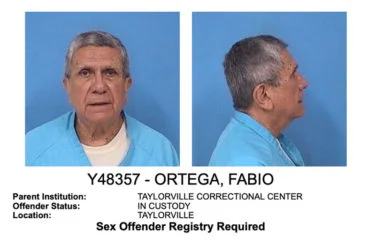
Proposed Changes in Michigan Law Could Expand Survivors’ Rights to Obtain Justice for Teacher-Student Sexual Abuse
Teacher-student sexual abuse cases reveal harrowing tales of abuse and manipulation by trusted adults, often coupled with school administrators and faculty members who turned a blind eye to the perpetrator’s actions. This abuse takes a devastating toll on survivors, who often delay reporting (or even accepting) that the abuse occurred.
Pursuing justice for cases involving the sexual abuse of a minor can involve both criminal charges and a civil lawsuit. The state brings criminal charges to punish the offender and protect the public from the assailant. However, a survivor can also bring a civil lawsuit to recover financial compensation for their damages.
Michigan Laws Limit Survivors’ Rights
Michigan lags behind other states in the laws that protect child abuse survivors. Under current law, criminal charges for many types of sexual abuse must be brought within ten years of the occurrence or the victim’s 21stbirthday (whichever is later). However, there is no time limit for felony 1st-degree criminal sexual abuse charges.
The time a victim has to bring a civil lawsuit is even shorter. Currently, a victim of child sexual abuse only has until their 28th birthday to file a claim against the individuals and institutions responsible for their childhood abuse. This restriction is one of the shortest statutes of limitations in the country.
Incredibly, these deadlines are a recent improvement, prompted by lawsuits against Larry Nassar and Michigan State University. Previously, Michigan had no separate statute of limitations for civil sexual assault lawsuits; most potential claims were subject to the three-year statute of limitations that applies to general personal injury lawsuits.
Holding Abusers and Institutions Accountable
High-profile cases of sexual abuse in academic institutions have been brought nationwide, revealing widespread wrongdoing and efforts to cover up or protect sexual abuse offenders. In a recent California case, a jury awarded $135 million to two victims of repeated abuse in 1996 and 1997. The teacher involved was convicted in 2006 of committing lewd or lascivious acts with minors and is currently serving a 52 years-to-life sentence.
The California case is notable because the jury allocated 90% of the responsibility to the school district for failing to protect the students. Attorneys presented evidence showing numerous boys had previously reported abuse to the school, which did not investigate or respond. Most horrifying was the revelation that after the teacher was convicted on charges of abuse against his foster child, the school allowed him to keep teaching sixth grade during the week and serve his incarceration on the weekends.
Reforms Protect the Public and Support Survivors’ Rights
Pursuing justice for these survivors and holding the school district accountable in this case was possible because California recently expanded the opportunities for victims of childhood sexual abuse to pursue their claims in court.
Survivors in Michigan have far fewer protections. However, several proposed legislative reforms would help survivors pursue justice against the individuals and institutions responsible for the abuse they sustained as children. The nine-part Access to Justice Plan would increase the state’s ability to punish sexual offenders and broadly expand the civil remedies available to survivors. Its proposed reforms include:
- Eliminating the statute of limitations for criminal sexual conduct in the second or third degree, allowing prosecutors to bring criminal charges against many individuals who previously were protected by the passage of time.
- Extending the statute of limitations for survivors to file a civil lawsuit to seven years (increased from three years) from when they discover they were abused, as well as extending the maximum age at which a survivor can file a claim from 28 to 52.
- Eliminating the governmental immunity provision currently protecting many state employees from liability for sexual abuse claims.
Additionally, the proposal would give all survivors a two-year “revival window” to file claims against their abusers and any responsible parties that would otherwise be time-barred. This provision could open the door for decades-old abuse cases to finally have their days in court.
What Is a Revival Window and How Does it Work?
A “revival window,” or “lookback statute,” is a legal provision that temporarily extends or lifts the statute of limitations for certain claims. Statutes of limitations limit the time a person has to file a lawsuit or bring legal action. Once the period has expired, an individual generally loses the right to recover compensation for their claim.
A revival statute temporarily suspends this deadline for a certain period following its effective date. It allows survivors a window of time, usually one or two years, to file civil claims that would otherwise be past the statute of limitations. Many states have passed these laws, opening the door for many individuals to pursue justice and closure for childhood traumas.
Revival window provisions address situations where a short statute of limitations prevents individuals from seeking justice. These are especially important in cases of childhood sexual abuse by a teacher, clergy member, coach, or other trusted adult because it can take many years for individuals to come to terms with their experiences. In fact, most survivors never come forward about their abuse; if they do, it is – on average – after the age of 52. A revival window would offer a “second chance” for survivors who were unable to come forward within the original time frame.
Michigan’s Pending Legislation Is a Step Towards Justice
In 2018, the Michigan legislature passed a revival window that gave sexual abuse survivors a 90-day window to file sexual abuse claims against Michigan State University related to former MSU physician and trainer Larry Nassar that previously would have been time-barred. However, this limited window did not apply to any other sexual assault survivors.
Michigan’s proposed legislation, if enacted, would provide survivors with a broader timeframe to come forward and seek justice. These reforms recognize it can take many years for survivors to grasp the full extent of the abuse and find the courage to come forward. Giving survivors extended opportunities for legal recourse represents a commitment to ensuring arbitrary deadlines do not silence them. It also helps acknowledge the enduring consequences of such abuses and the necessity of holding perpetrators and institutions accountable.
If you are a survivor of childhood sexual abuse by a teacher, coach, or other individual, contact the experienced Michigan sexual abuse attorneys at Sommers Schwartz, P.C. You may be able to recover compensation for your damages and help protect other students from abuse.
Lisa Esser-Weidenfeller
Lisa Esser-Weidenfeller represents injury victims in personal injury and medical malpractice claims. She also represents individuals in cases against those who have committed horrific acts of sexual assault.





